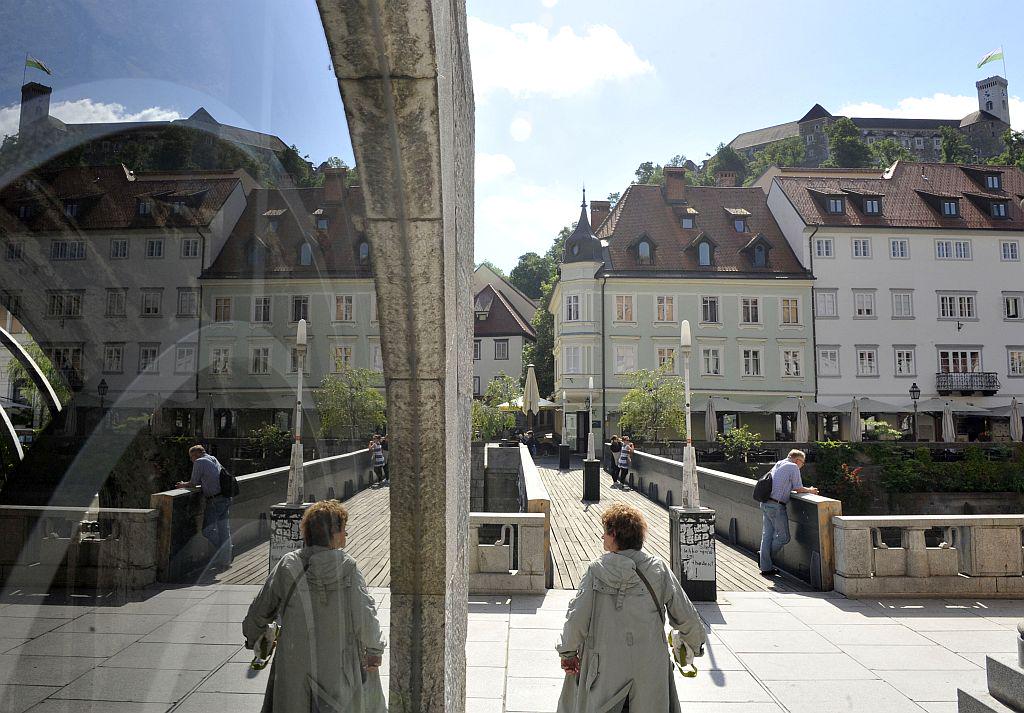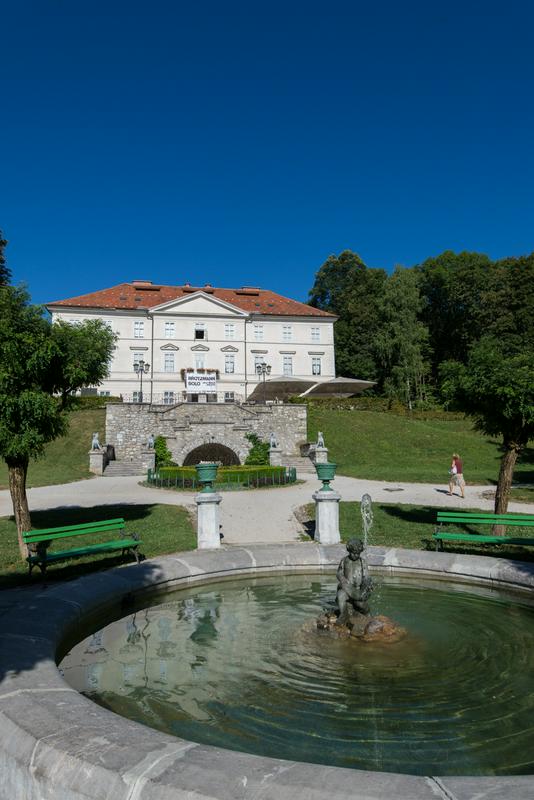

The urban planning of Ljubljana is a project already in progress and one which has received a warm response from the European Commission. At a ceremony in Copenhagen at the end of June, the capital of Slovenia was awarded the coveted title of European Green Capital for 2016. The city of Ljubljana thus still has two years to go even greener. And this is something that all Slovenians are looking forward to.
Space is one of the key factors for the building of both individual and national identities. Since Slovenia gained independence, its capital has been becoming increasingly greener and more cosmopolitan. However, it is an interesting fact that the residents of Ljubljana, and apparently also foreign residents, in particular appreciate the city’s safety, comfort and homeliness rather than focusing attention on its cosmopolitan nature as is the case, for example, in Paris, London, Berlin or New York.
Vision 2025
The jury was particularly impressed with Ljubljana’s implementation of the city’s sustainability strategy, "Vision 2025", which follows an integrated approach to environmental management. According to the jury, Ljubljana has made significant progress in the area of green procurement policies and dramatically changed its transportation to eco-friendly alternatives. Last year, the city modified its traffic flow to limit motorised traffic and give priority to pedestrians, cyclists and public transport. The number of cyclists using the "BicikeLJ" bike-sharing system is also increasing. Ljubljana has also shown progress in the field of waste and wastewater treatment and committed to the goal of "Zero Waste" status. In addition, the jury drew attention to Ljubljana’s efforts in sharing its experience and solutions in the area of disaster relief, which was recently demonstrated by the aid provided to the Balkan region during the recent floods.
As residents of the capital, we enjoy the parks and greenery
Slovenians cannot live without nature, not even in the city centre. Parks and other green areas offer the residents of Ljubljana space to enjoy walks, recreation, games and, most important, relaxation away from the hustle and bustle of the city. The most beautiful green oases in Ljubljana are Tivoli Park, Zvezda Park, the University Botanical Gardens, the former Špica swimming area along the River Ljubljanica, the Navje Memorial Park, and the Koseze Pond with its surrounding parkland. In short, nature is present at every step, which much enhances wellbeing in the city. There are also forests in view no matter which direction you turn, and this is something the residents of Ljubljana are proud of. On the other hand, I have not heard anyone from Ljubljana proudly say, "I grew up in a city surrounded by asphalt." No, it seems we’re just not that keen on asphalt in Ljubljana. The most recent example of good practice, in June this year, was the opening of a park by the southern section of the Ljubljana ring road which connects the city with a previously neglected area of the Ljubljansko Barje Landscape Park. Here the municipality removed 300 tonnes of construction and 15 tonnes of asbestos waste and planted some 90 trees.
Tending allotments is also quite a big thing in Ljubljana, providing afternoon relaxation for many a Ljubljana resident. These enthusiasts have been called vrtičkarji (allotment gardeners). Not long ago, allotments were just small plots with a variety of individual solutions. Today, on the other hand, many allotment areas are neatly laid out and feature small terraced huts. These somewhat resemble Russian dachas, serving as miniature weekend houses for many Ljubljana residents. Tending allotments has indeed become something of a symbol of Ljubljana, and there is even a TV Slovenia sitcom centred on this aspect of city life.
Seeing the future through green-tinted spectacles
In the coming years, the municipal authority of Ljubljana will continue to pursue the implementation of adopted strategies and operational plans for all green areas. Among other things, the Regional Waste Management Centre will soon be upgraded and the construction of the third phase of the Ljubljana central treatment plant and the connecting channel has reached the final stage. The municipality also plans to modernise the fleet of the Ljubljana public transport company, LPP, expand the area for tending allotments and extend the BicikeLJ self-service bicycle hire scheme. Furthermore, next year the municipality will devote much attention to the energy retrofit of the city, to expanding the network of the wastewater treatment system, to reducing water loss in the pipeline network, and to protecting water resources and maintaining a high quality of drinking water without prior treatment, which is an important competitive advantage of Ljubljana.
Winning the title of European Green Capital firmly puts Ljubljana on the European green map. As the municipality points out, "The wave of interest from abroad is growing stronger week by week, which proves that we are more visible and that we are successfully strengthening the city brand and boosting its value abroad. In 2016, the voice of Ljubljana will spread considerably further than it would have otherwise, and we would like to make the most of it for the benefit of both the inhabitants and the city itself."
The capital of Slovenia is the first green capital in the region
In 2016, Ljubljana will be the centre of green Europe. In cooperation with the European Commission, Ljubljana will host three events: the opening ceremony, the event announcing the winning European Green Capital for 2018 and the closing ceremony presenting the green title award to the successor of Ljubljana. In this regard, the Ljubljana city authorities commented, "By becoming the first Green Capital in Central and South-Eastern Europe, we are also expected to successfully spread and enhance the idea and values of the Green Capital in this part of the world and encourage other cities aspiring to be sustainable and green to participate."
Tanja Glogovčan, SINFO

































































